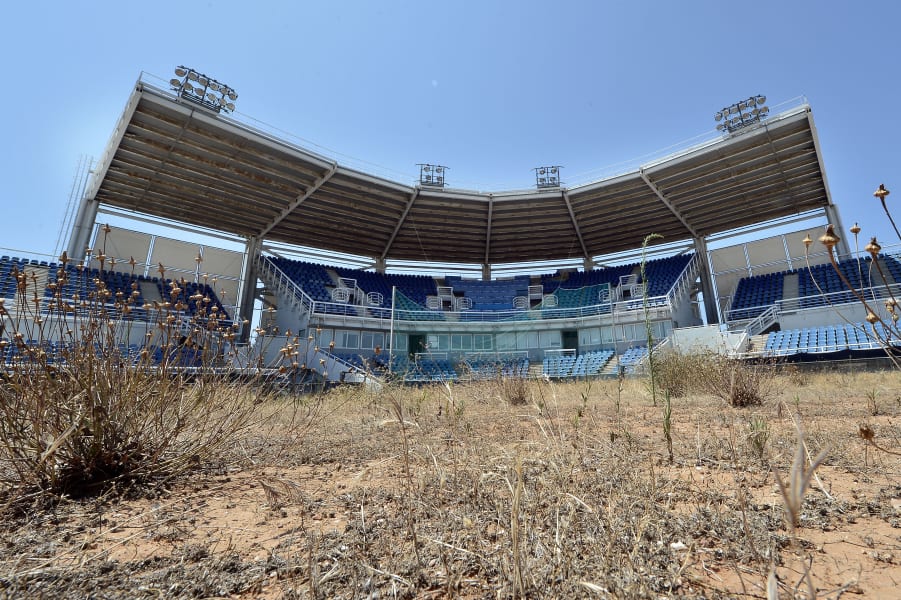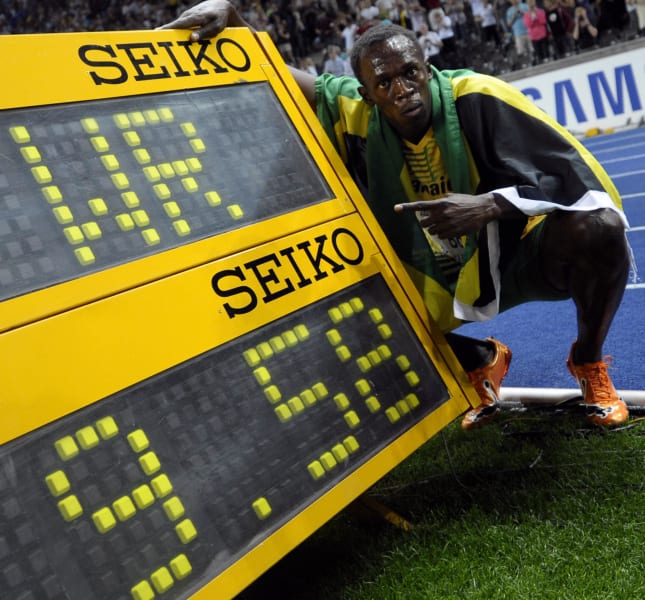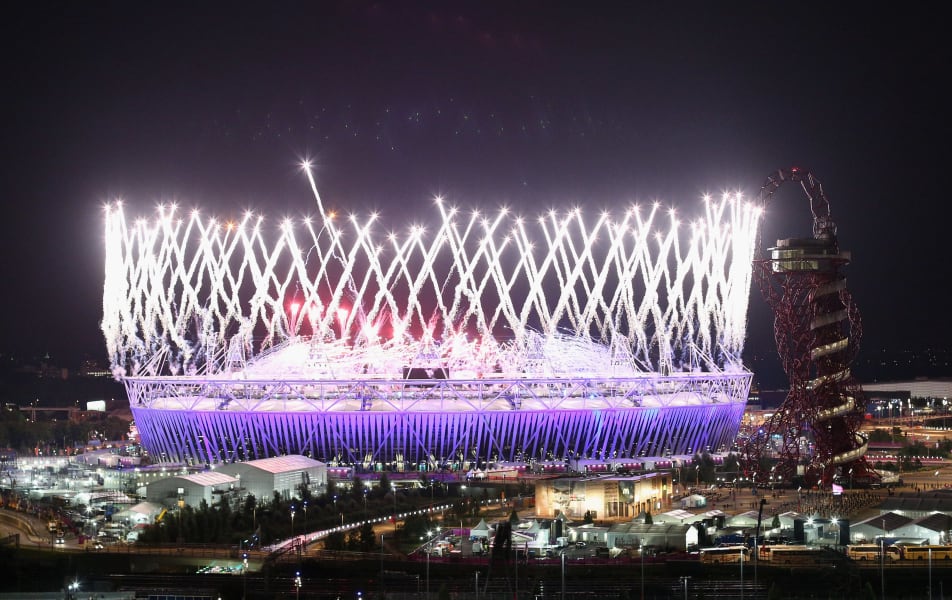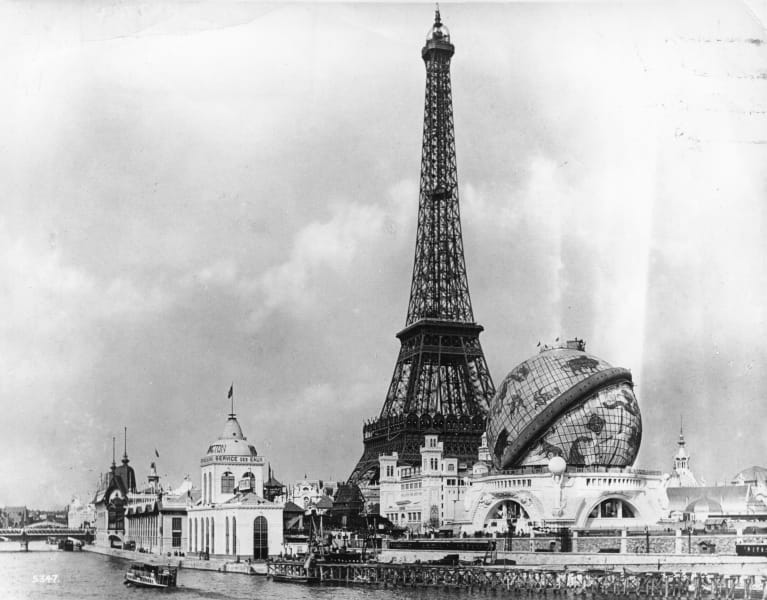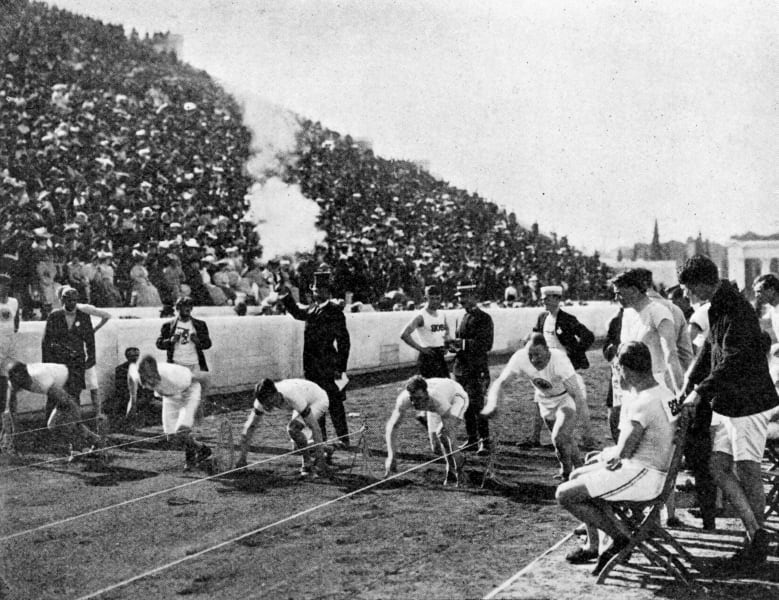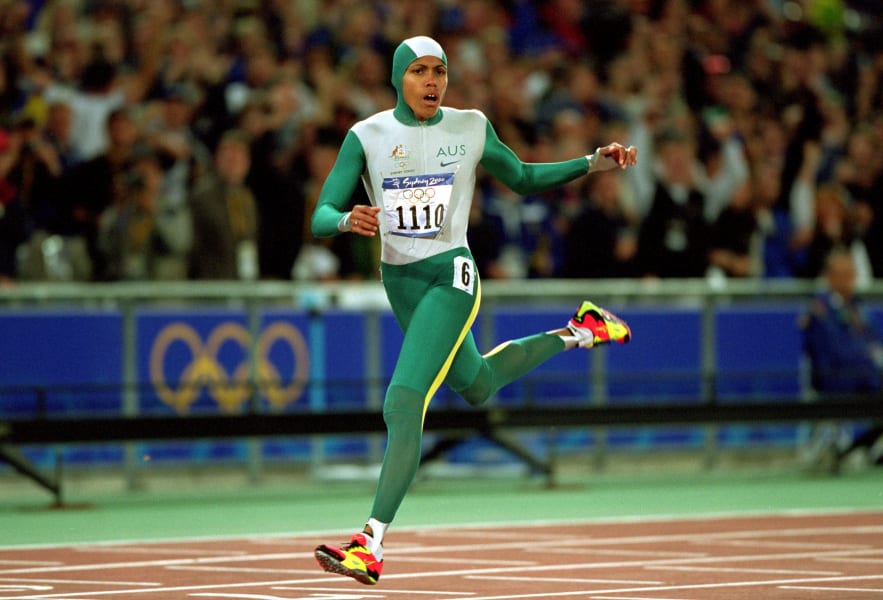Sport
2016 Olympics: 27 Games in 27 images
By Tom McGowan, CNN
Updated 1241 GMT (2041 HKT) September 23, 2015
Share
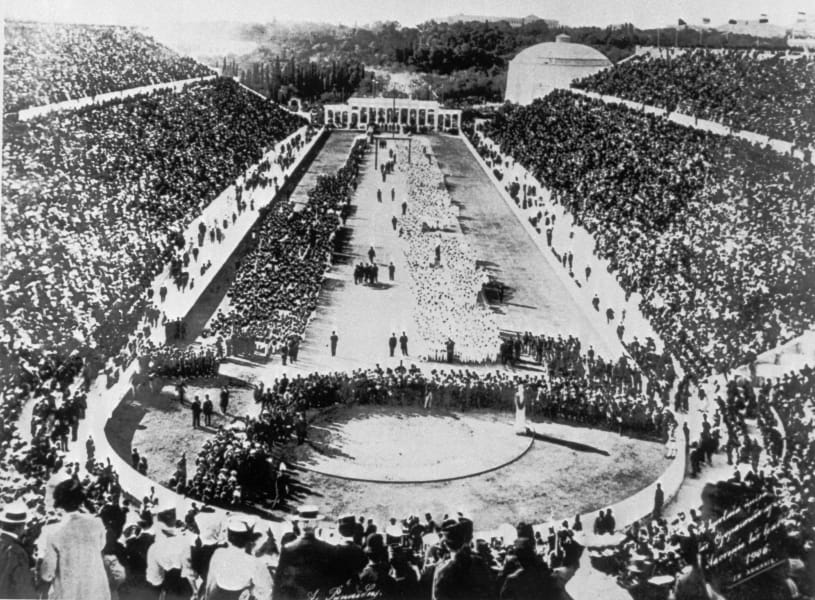

1 of 27
Greece's ancient capital hosted the first modern Olympic Games. The opening ceremony took place at the Panathinaiko Stadium before 241 athletes from 14 nations took part in 43 events across nine sports. Getty Images / Handout/file
Four years later, the Games were held as part of the world's fair in the French capital. The Eiffel Tower was a central focus of the "Exposition Universelle." London Stereoscopic Company/Getty Images/file
The Olympics left Europe for the first time in 1904 and arrived on U.S. soil. One of the stars in St. Louis was Archie Hahn -- second from the right in this picture taken in 1906. The American won three gold medals, in the 200 and 100 meters and the now-defunct 60 meters. Hulton Archive/Getty Images/file
The only city to have hosted the Olympic Games on three separate occasions, the UK capital made its bow in 1908. Queenie Newall won the ladies' "double National round" archery competition at the age of 53. Allsport Hulton/Archive
Swedish athletes enter Stockholm's Olympiastadion on June 6, 1912, under the watchful eye of King Gustaf V. "It is with legitimate joy and pride that we Swedes see athletes from every part of the world gathered here with us," the monarch said upon opening the Games. "It is a great honor for Sweden that Stockholm has been chosen as the scene of the Fifth Olympiad, and I bid all of you, athletes and friends of athletics, a most hearty welcome to this friendly contest of the nations." In an Olympic first, electronic timing was introduced for athletics events. Schirner/Hulton Archive/Getty Images/file
The 1916 Games, due to take place in Berlin, were canceled due to World War One. Germany, Hungary, Austria, Bulgaria and the Ottoman Empire were all banned from the 1920 edition held in Belgium. Getty Images/file
The Games returned to France in 1924, with U.S. athlete Clarence "Bud" Houser winning gold in both the shot put and discus field events -- he defended the latter in Amsterdam four years later. AFP/Getty Images/file
The Dutch capital was host after failing with bids to stage the 1920 and 1924 events. Hildegard Schrader of Germany won the women's 200-meter breaststroke event. Central Press/Getty Images/file
An Olympic village was built for the first time ahead of the Los Angeles Games. It was used to house the male athletes, with women staying at the Chapman Park Hotel. Schirner/Hulton Archive/Getty Images/file
These Games will forever be associated with Adolf Hitler and his brutal regime. Germany's Fuhrer viewed it as an ideal opportunity to show the supremacy of the Aryan race, but American Jesse Owens flew in the face of such prejudices by winning four gold medals -- three in sprint events and one in the long jump. The first torch relay was held, with the flame carried from Mount Olympus to the Olympic Stadium. Fox Photos/Getty Images/file
The British capital hosted the first Games in 12 years, debt-ridden and struggling to recover from the devastating effects of World War Two. London had just 18 months to prepare itself, while also trying to emerge from the rubble created by heavy bombing during the six-year conflict, with a population still restricted to rations. Here we see the men's 800m semifinal taking place at Wembley Stadium. Central Press/Getty Images/file
Emil Zatopek (right) of Czechoslovakia was the "iron man" in Finland's first Games, taking gold in the 5,000 and 10,000 meters and the marathon -- the only Olympian to have achieved the grueling feat. CORR/AFP/Getty Images/file
Sprinter Betty Cuthbert (third from the left) was the golden girl of Australia's first Games staging, tasting victory in the women's 100m, 200m and the 4x400m relay. Keystone/Hulton Archive/Getty Images/file
Before he was "The Greatest," Muhammad Ali was Cassius Clay, a modern-day gladiator who won boxing's light heavyweight gold medal in Italy's historic capital. Central Press/Getty Images/file
The lighting of the torch was particularly poignant as Yoshinori Sakai -- born in Hiroshima on August 6, 1945, the day an atomic bomb was dropped on the Japanese city -- ignited the cauldron. Keystone/Hulton Archive/Getty Images/file
American Dick Fosbury changed the high jump forever by claiming the gold medal with his revolutionary "Fosbury Flop" technique. It has since become the dominant technique in the event. AFP/Getty Images/file
The Games paled into insignificance after members of the Palestinian terrorist group Black September broke into the Olympic Village, killed two Israeli athletes and took nine hostage. Those captured died during a failed rescue attempt by German authorities. AFP/Getty Images/file
Nadia Comaneci may have only been 14, but the Romanian gymnast scored a "perfect 10" on her way to winning three gold medals in Canada. The scoreboard could only display three digits, so her score went up as 1.00. AFP/Getty Images/file
While these Games are largely remembered for a U.S. boycott over the Soviet war in Afghanistan, they also featured an almighty battle between two British middle-distance runners. Steve Ovett took gold over his rival Sebastian Coe in the 800m, despite the latter holding the world record over the distance. Ovett was heavy favorite going into the 1500m and boasted a 45-race winning streak, but Coe avenged his earlier defeat as his compatriot finished third. Staff/AFP/Getty Images/file
Carl Lewis ran and jumped into Olympic history in the absence of the boycotting Eastern Bloc nations. He won four gold medals across sprinting and the long jump to equal the haul of his fellow American Jesse Owens in Berlin 48 years earlier.
Ben Johnson stunned the world by taking 100m gold in a record time in South Korea, but the Canadian left the Olympic movement in turmoil when he later tested positive for a banned substance. Simon Bruty/Allsport/file
Derek Redmond broke down in tears during the semifinals of the men's 400m in Spain. The Briton had been one of the favorites to win gold but he succumbed to injury midway through his race. After refusing to be carried on a stretcher, Redmond's father Jim carried him over the finish line -- providing one of the most heartbreaking, and abiding, Olympic images. Staff/AFP/Getty Images/file
Two people died as a result of a terrorist bombing, and more than 100 others were injured, as the U.S. hosted the first Summer Games to be held in a different year from the Winter version. Eric Robert Rudolph was convicted of placing the 40-pound bomb, filled with nails and screws, in Centennial Olympic Park. Alice Hawthorne, 44, of Albany, Georgia was killed by the explosion while Turkish cameraman Melih Uzunyol died of a heart attack as he rushed to film the scene. Georges Gobet/AFP/Getty Images/file
Cathy Freeman delighted Australian fans by winning the women's 400m, becoming the first athlete to light the Olympic torch and take a gold medal at the same Games. Mike Powell /Allsport/Getty Images/file
The deterioration of the softball stadium for the Athens 2004 Games reflects the problems some countries encounter when trying to establish a lasting Olympic legacy. This picture was taken in July 2014. Milos Bicanski/Getty Images/file
China's first Olympics was all about Usain Bolt. The Jamaican sprinter wowed the world, setting records in both the 100m and 200m en route to gold medals before adding the 4x100m relay title to his haul. Four years later in London, Bolt completed the "Double Triple" by winning all three gold medals again. Michael Kappeler/AFP/Getty Images/file
The opening ceremony set the tone for a Games which captivated the British public. Film director Danny Boyle orchestrated the spectacular display, which included the Queen skydiving with James Bond and David Beckham cruising down the Thames. Bonkers, and British. Oli Scarff/Getty Images/file
